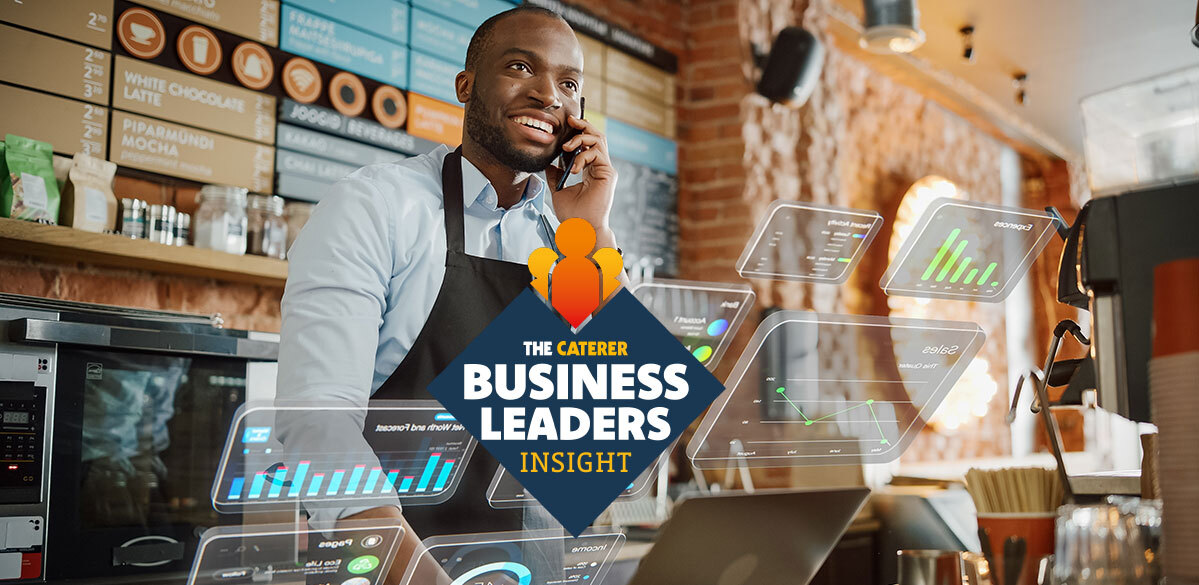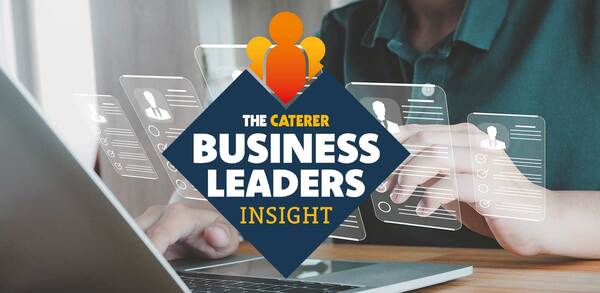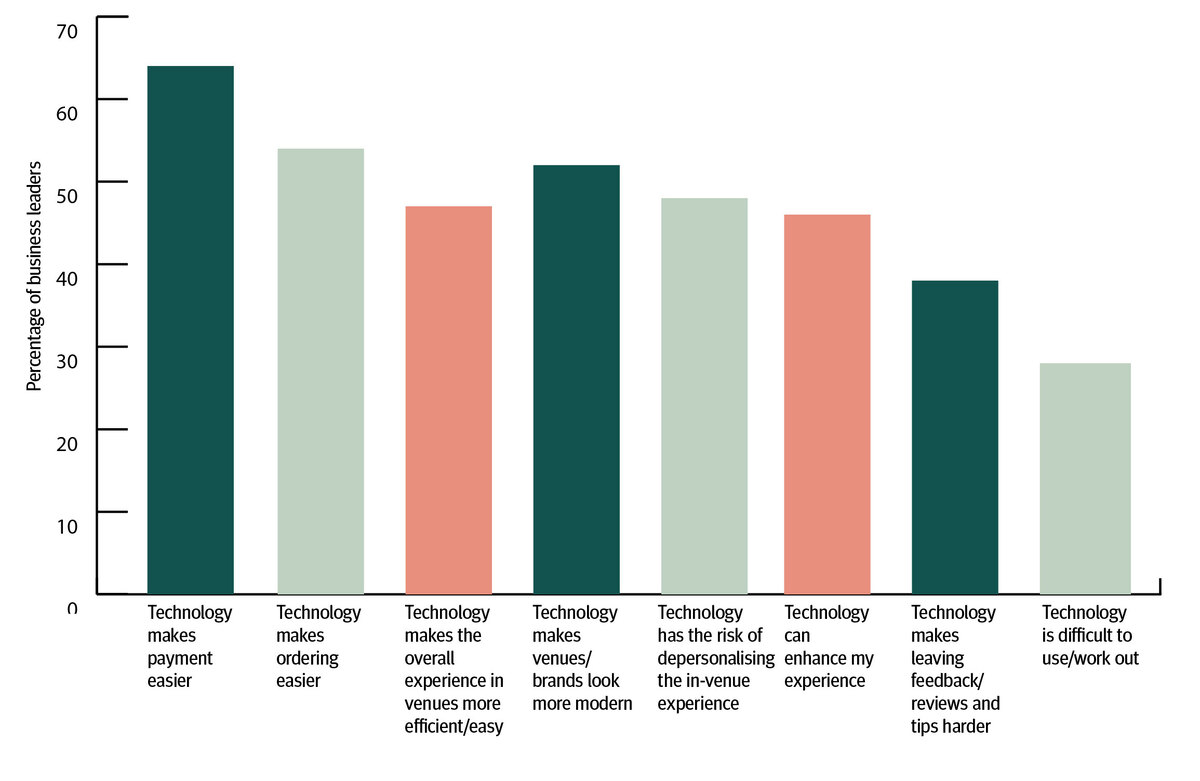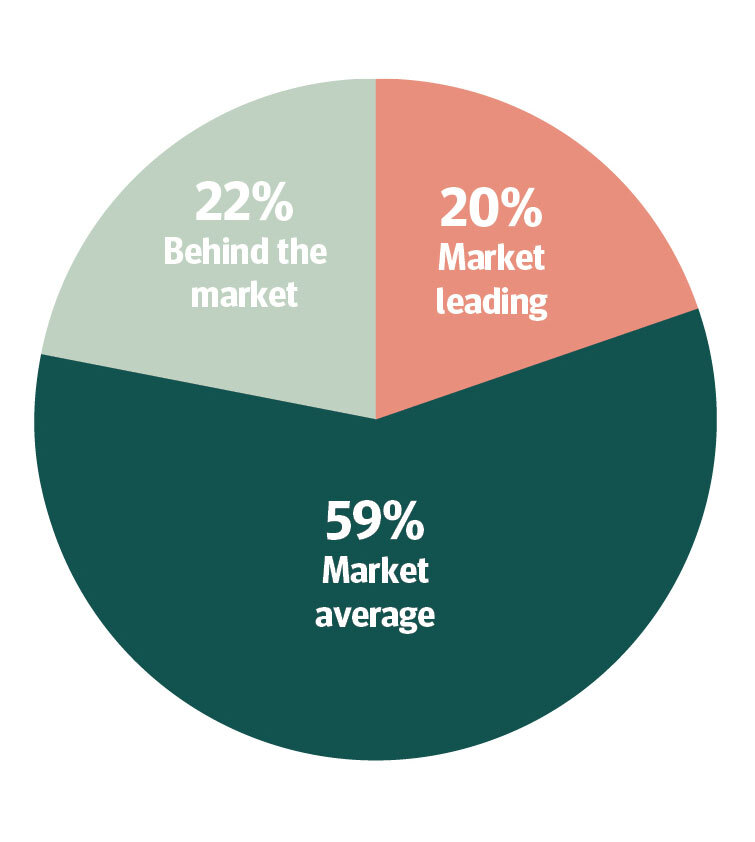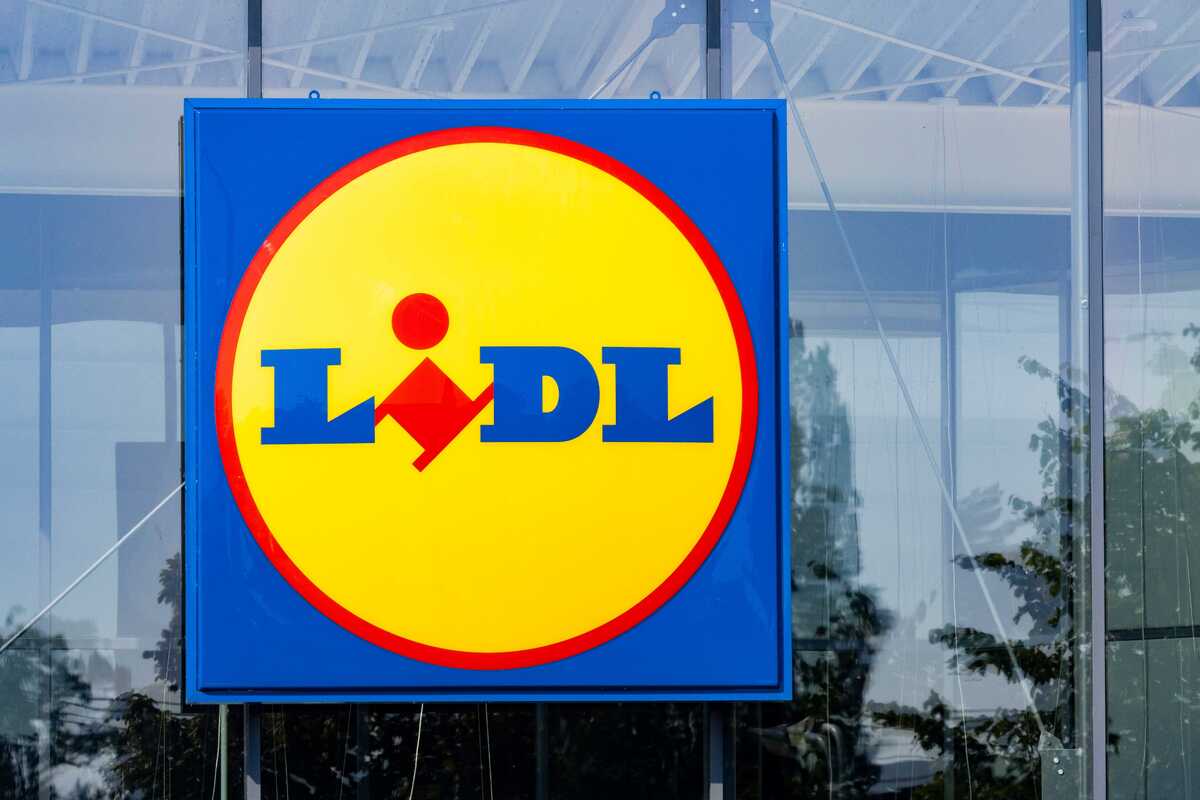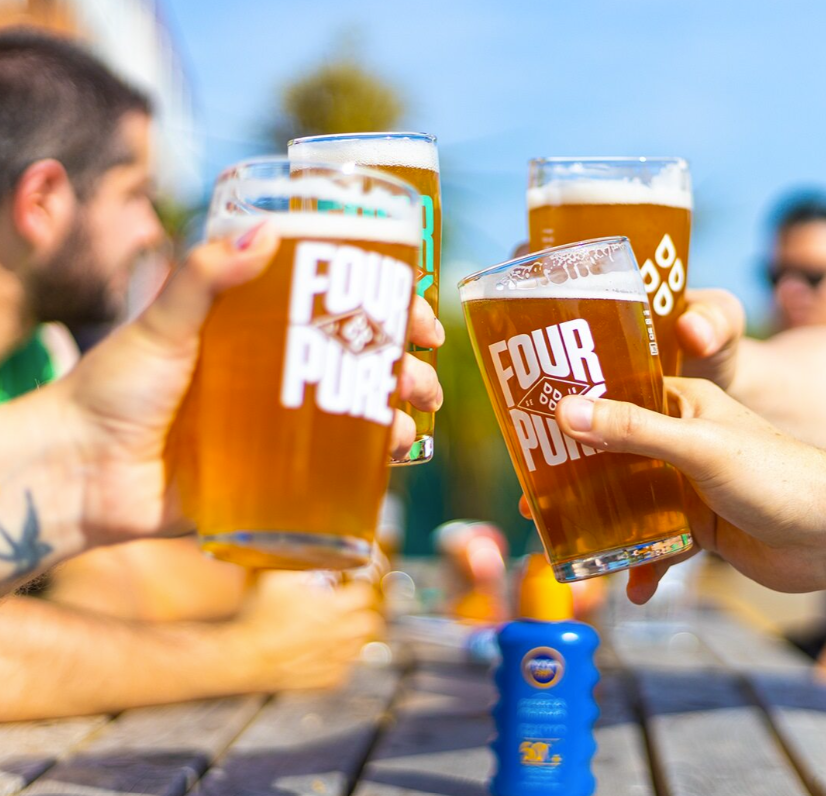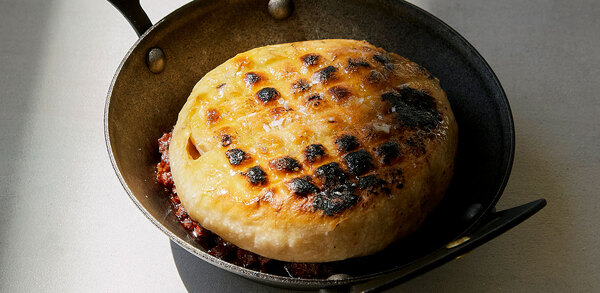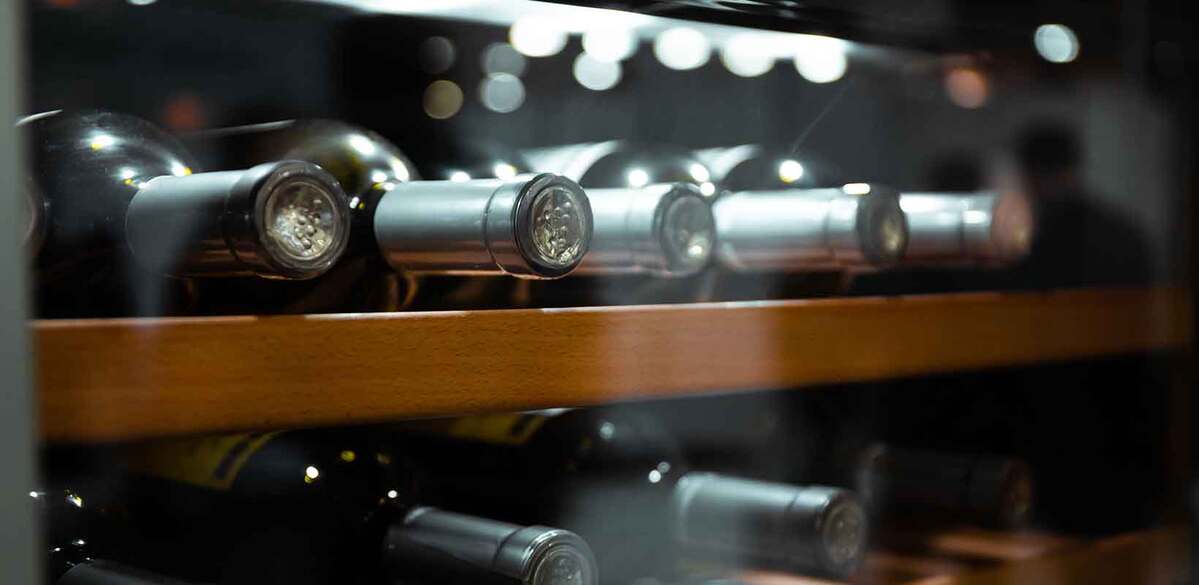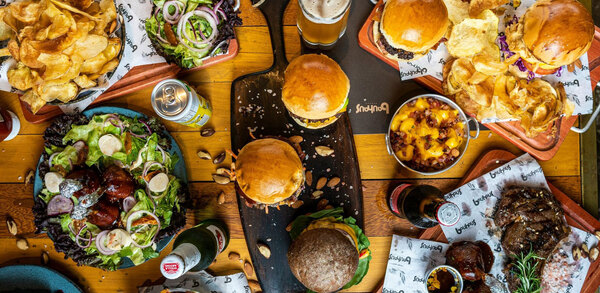Business leaders need to get up to speed with technology
Operators may not be embracing technology, according to the 2023 Hospitality Business Leaders Survey, but when they use it to tackle a hospitality-specific problem, it can reap rewards. Emma Lake reports
Just one in five hospitality business leaders believe their venues are cutting edge when it comes to technology.
The Hospitality Business Leader Survey 2023, produced by The Caterer and CGA by NIQ, found that a further 59% of business leaders felt they were in line with the market and 22% thought they were behind their competitors when it came to technology.
There are seemingly endless solutions on the market to simplify everything from staffing rotas to guest management and payment, but finding the right technology that will make a tangible difference to your business, delight customers and pay back on your investment can be challenging.
Gather & Gather, part of CH&Co, won the Best Use of Technology Catey in July, after introducing an AI checkout solution in partnership with hospitality solutions provider Lolly. The two companies began working together after the caterer secured its first university contract in 2019. It was looking for a means of offering an enhanced customer experience that would also improve operational efficiency and provide robust data analytics.
Lolly’s Snapserve system uses AI technology, cameras and sensors on its automatic checkout. Customers place their tray under a camera and the AI system recognises their items and tots up the amount due. They then simply scan their card before being emailed a receipt.
Raj Jeyaratnam, special projects director at CH&Co, says: “It really is amazing. From a customer perspective the technology is seamless and delivers efficiency at the checkout for busy environments, increasing transaction speed by 84% and enhancing the customer experience.”
The need for a technological solution had been clear to the business. Jeyaratnam adds: “Before the project launch, queuing during peak times was a significant issue at our test site. While employees loved the food offering, the long queues negatively affected the customer experience, causing frustration for customers, clients and our team members, who wanted to give our customers the best hospitality possible.
“We did not have the option of physically changing the design and flow of the restaurant, so the primary objective of the project was to enhance service efficiency to reduce queues, thereby elevating the overall offering and boosting customer and client satisfaction.
“We recognised that if we could make this solution work at this location, the potential for broader deployment to other clients would be immense. Not only would we streamline the checkout process, but we could also repurpose team members to focus more on customer concierge services rather than purely transactional roles.”
As with many projects on this scale, the rollout was not entirely seamless, but the team embraced a ‘fail fast’ strategy, reacting quickly to adapt to any issues.
Jeyaratnam explains that a constant feedback mechanism was developed for on-site teams to share the best way to plate dishes so the AI could recognise them. He says: “The key with any new technology is bringing everyone along on the journey, and this was made possible by having a supportive client and a fully engaged operations team.”
The project has not just won the team awards, but also delighted guests. Jeyaratnam says: “Our customers love the simplicity and speed of the solution, which has truly transformed their experience. And it’s backed by excellent data that supports the continuous enhancement of our offerings, ensuring they remain fresh and exciting.
“We now have a compelling case study and clients clearly see the benefits. We are actively deploying the solution across multiple client locations within Gather & Gather and more broadly across the CH&Co brands, supporting both our existing business and new ventures.”
Take it easy
When CGA asked business leaders for their views on technology in bars, restaurants and other venues, 64% recognised that technology could make payment easier, while 54% believed it could ease ordering. However, 48% thought there was a risk it could depersonalise the in-venue experience and 28% said technology was too difficult to implement and use.
At the London Marriott Hotel County Hall, necessity brought about innovation in the aftermath of the post-Covid staffing crisis. Andrew Bloomer, director of food and beverage, says that the hotel had looked for a way for to streamline its in-room dining system with a lighter staff requirement. It partnered with a guest experience platform from Iris to introduce mobile ordering. Bloomer says: “As customers became more comfortable with it we decided to migrate away from traditional paper menus to a digital offer, which has essentially made it much easier for the customer.”
As well as reducing the staffing requirement, benefits include the ability to remove out-of-stock dishes from menus to avoid customer disappointment, adapt pricing and allergy details, and promote different dishes through placement on the homepage. The app has also dramatically speeded up processing and delivery times.
There were some concerns when implementing the system. Bloomer says: “The more time you can dedicate to the set-up, the better the set-up will be and the better the roll-out. You have to be very methodical.
“We had to rush it in post-Covid and it did take quite a long time to get the product right. There were concerns around average spend, particularly that we were going to lose out without someone making a recommendation for upselling.
“But it is right now and the app offers the ability to upsell. Every dish has a paired beverage and we’re seeing an extra £2 to £3 spend on average. The whole experience is far more efficient – it’s a win for everyone.”
The new system has also allowed the hotel to introduce a more informal delivery-style offering, complete with takeaway packaging, that has been developed in response to the rise of guests using services such as Deliveroo and Uber Eats.
Bloomer adds: “The issue that all hotels have is that, in a massive city like London, it is possible to get almost every food that you can possibly want delivered to your hotel within about 30 minutes. You go to any big London hotel now and you are seeing delivery drivers turn up at the front desks with food orders. We’d be silly not to try and capitalise on that.”
The hotel is now looking at opportunities to further capitalise on its investment and is developing a tablet-based ordering system for its meeting rooms, that will reduce paper usage and help improve communication.
As both Marriott and Gather & Gather found, implementing new technology can be complex, requiring not just financial investment but time and input from all team members, but when it works, the results can be transformational for both business and guest.
Tim Rumney, chief executive, BWH Hotels GB

In the ever-evolving landscape of the hospitality industry, technology has become a cornerstone for enhancing customer experience and operational efficiency. At BWH Hotels GB, we have witnessed firsthand how innovative tech solutions can transform the way we deliver our services, ensuring that our guests enjoy a seamless and memorable stay. We also have to constantly weigh up what technology is available and what our guests actually want.
A survey taken from our loyal base of Best Western Rewards Customers highlights the importance of technology and revealed what they want (and do not want) in their hotel stays. Perhaps unsurprisingly, high-speed Wi-Fi is the most valued technology by guests, and contactless payment options are also a necessity, providing a safe and convenient way to handle transactions.
Interestingly, the survey revealed that certain technologies are less favoured. Automated customer service technologies, such as chatbots and voice-activated assistants, are least preferred, with guests wanting human interaction. Digital cashless tipping is also viewed as unnecessary by some, indicating a preference for traditional methods.
Guests are excited about future trends. Artificial intelligence is anticipated to provide personalised experiences, from tailored recommendations to efficient service delivery. The Internet of Things (IoT) promises seamless connectivity between devices for an integrated and convenient stay.
By automating routine tasks, we can free up our teams to focus on what truly matters – our guests. For instance, automated housekeeping systems can streamline the scheduling and management of cleaning tasks, ensuring that rooms are ready promptly. Similarly, digital inventory management systems ultimately leading to cost savings and efficient operations.
Despite the clear benefits of technology, it’s important to acknowledge that not all businesses are at the same level of technological adoption. According to The Caterer’s data, 22% of business leaders feel they are behind the market in technology innovation, and only 20% consider themselves market-leading. This disparity highlights the need for a more concerted effort to embrace and invest in technology, whilst knowing its place within a business.
Simon Hill, digital director, Compass Group UK & Ireland
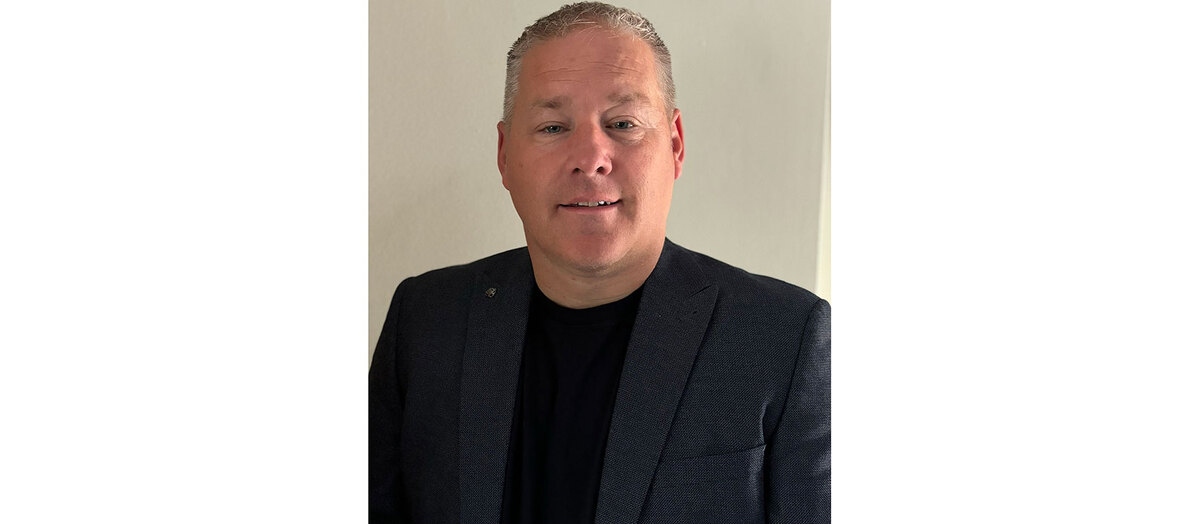
Our business is multifaceted, so our tech and innovation needs to span digital, data and systems. For successful innovation, we need to think about every aspect of our business from back of house systems through to our end customers.
Digital investment continues to be a key part of our strategic development, aligning to business aims around growth, innovation and compliance, while supporting and informing our progress in relation to sustainability, social mobility and health and wellbeing goals.
Our Compass Group Global Eating at Work survey highlighted the growing importance of tech around customer experience, reporting 69% of Gen Z and Millennial workers in the UK are happy to order food and drinks via apps, compared to less than half of Gen X (48%) and only a quarter (26%) of Baby Boomers. There is no doubt, Gen Z are digital natives, born in the era of on-demand culture, and as a result, they have a greater interest in and expectations of technology for foodservice.
Technological innovations also help us to create systems that benefit our people, to ensure they can do their jobs in the best way possible. Examples of success include our E15 platform, which uses data insights to provide detailed analytics that help us make informed decisions in real time. Our food waste management system, and the data it generates, has enabled us to make targeted and impactful changes to reduce waste. Meanwhile, our partnership with the food technology company Foodsteps has helped us more accurately measure the carbon footprint of dishes and empower our teams to adapt menus as we continue to reduce our emissions.
Our people systems have evolved – everything from our Career Pathways L&D portal to how people book shifts needs to run seamlessly. We have also streamlined our recruitment processes utilising an innovative tech-led approach. This included redesigning our application process to make the hiring experience faster, efficient and intuitive, as well as mobile friendly and accessible. This has led to a significant increase in successful job applications, helping us to hire effectively in a really competitive market.
Our priority now is to bring all our solutions together into an integrated product set, providing an efficient platform for our colleagues to use. This strategy has several strands of activity to it, which encompass key trends such as personalisation, AI and effective data utilisation and will enable us to more efficiently tailor our products and services to individual sectors, customers and clients. In addition to this, we continue to invest significantly in our digital (customer facing) solutions, with a major focus on bringing market leading innovation to enhance our customers’ experience.
Across our industry, there is no doubt that tech will continue to play a pivotal role. Our size and scale bring many benefits, in particular the ability to draw on expertise from across our sectors and wider business, as well as working with industry leading partners to access and invest in the very best technology.




